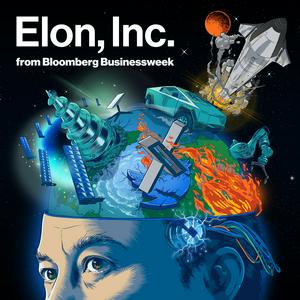This is the final episode of Elon, Inc., and it comes at a fitting point in the story of the highly controversial entrepreneur Elon Musk. The podcast was launched around the time the South Africa native bought and rebranded Twitter, transforming a mainstream social media platform into something else entirely. Now, the podcast has found a natural conclusion with his full return to his companies, his exit from the Trump administration and the unprecedented governmental upheaval, mass firings and grim global consequences left in his wake.
To reflect on this tumultuous timeline, David Papadopoulos gathers the best and brightest Elon Musk experts the Bloomberg newsroom has to offer—including Bloomberg Businessweek’s Max Chafkin and Bloomberg News Musk reporter Dana Hull, technology reporter Kurt Wagner and editor Sarah Frier—to go through the most memorable Musk stories from the past few years and to peek into the future of Musk’s empire and potential political ambitions.
Among the stories we discuss are Musk’s outburst directed at advertisers at the New York Times DealBook summit, that time when Musk and President Donald Trump were hawking Teslas from the White House driveway and the right-wing multibillionaire’s “awkward hand gesture.” But in the end, is there any story that can top the rise and fall of the Musk-Trump friendship? Probably not. Musk spent hundreds of millions of dollars getting the Republican back in the White House, but their partnership didn’t make it past the summer. As Chafkin says, “that was obviously the Elon feud to end all feuds.”
When it comes to looking forward, speculation abounds, but one thought in particular wins the group’s approval: Hull’s prediction that the South Africa native will one day make good on his promise to open a candy company. As the Elon, Inc. podcast rides into the sunset, future Musk coverage will find a home on the new Bloomberg podcast, Everybody’s Business, co-hosted by Stacey Vanek Smith and Chafkin.
See omnystudio.com/listener for privacy information.


